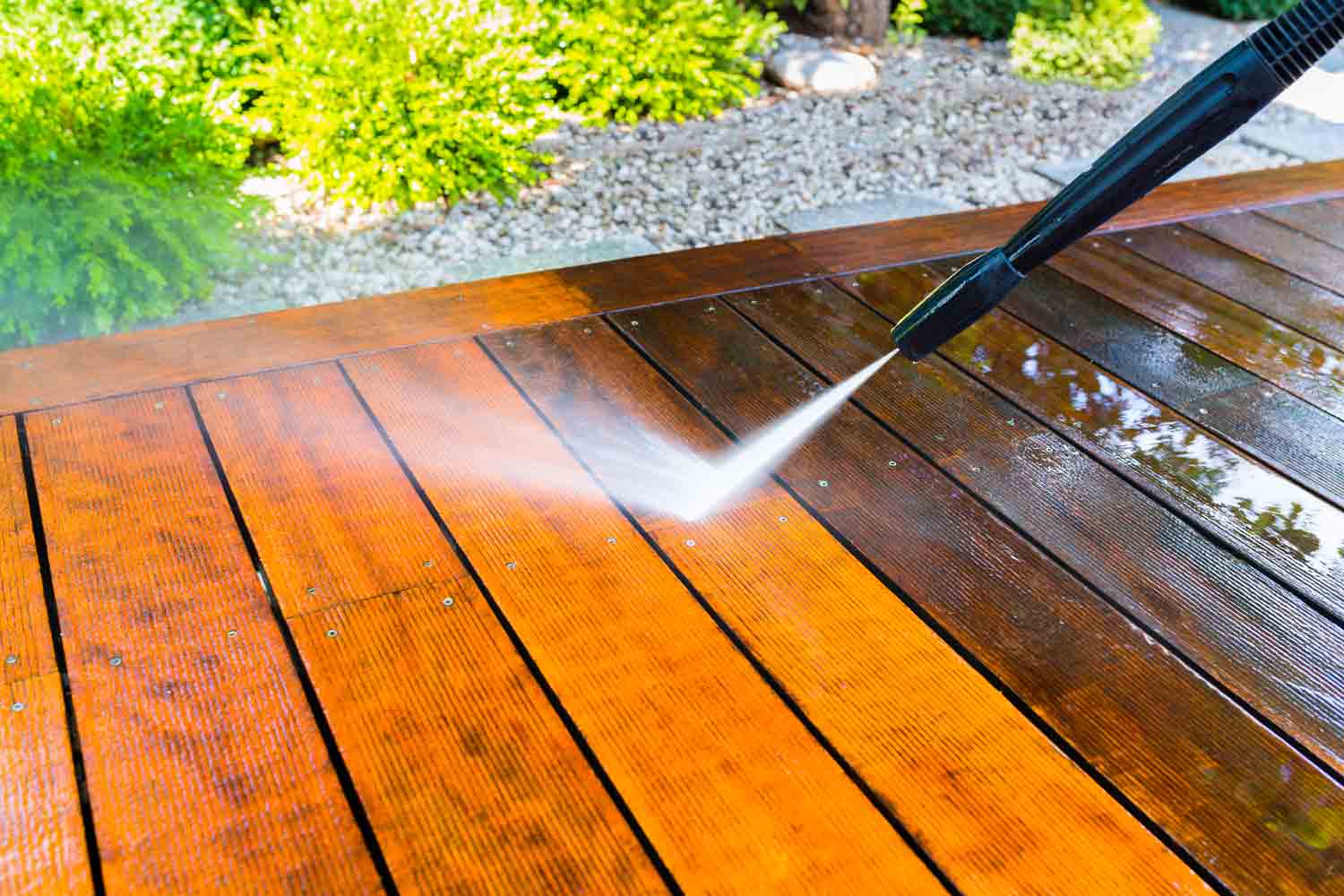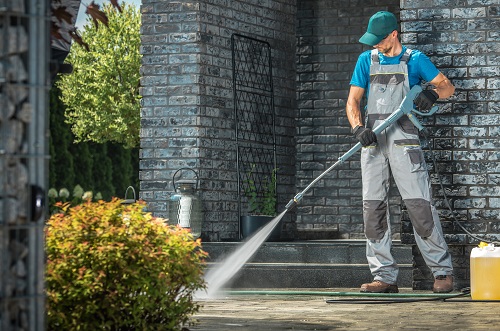The Ecological Advantages of Pressure Washing: A Cleaner Home and Earth
Pressure washing is greater than simply an efficient cleaning technique; it symbolizes a commitment to ecological stewardship. By using high-pressure water, this technique lessens the dependence on extreme chemicals, thus minimizing dirt and water contamination. Additionally, it preserves water sources, making use of substantially less than typical methods. Beyond water conservation, pressure washing also plays an essential function in enhancing air quality by getting rid of allergens and contaminants. Additionally, it improves residential or commercial property long life by avoiding surface area damages. What often goes unnoticed, nevertheless, is how these advantages jointly add to a lasting and healthier ecosystem. But what are the deeper effects of these benefits?
Minimizes Chemical Usage
Decreasing chemical usage is one of the substantial environmental benefits of pressure cleaning. Pressure washing, on the various other hand, utilizes the power of highly pressurized water to achieve the same, if not better, cleaning outcomes without the requirement for these hazardous compounds (kansas city gutter cleaning).
Pressure washing ensures that surfaces are not just ostensibly tidy but deeply sanitized, stopping the requirement for repeated chemical applications over time. By embracing pressure washing, services and house owners can contribute to a cleaner atmosphere, minimize their ecological impact, and promote a healthier ecological community.
Conserves Water

A normal garden hose pipe, for circumstances, can consume to 10 gallons of water per min, whereas pressure washing machines balance around 2-5 gallons per min. This stark difference illustrates the water preservation possibility of pressure washing, making it an extra lasting choice for house owners and companies alike. By using pressurized streams, these tools make certain that every decrease of water is used efficiently, lowering general intake and minimizing waste.
Additionally, the performance of pressure washing translates to much faster cleaning times, which additionally adds to water conservation. Taking on pressure washing not just advertises cleaner surfaces yet likewise sustains more comprehensive ecological sustainability by saving one of our earth's priceless resources.
Improves Air Quality
Pressure washing not only conserves water but also considerably improves air quality, offering an additional crucial ecological benefit. The procedure properly gets rid of gathered contaminants, such as pollen, mold, and mold, from external surfaces. These contaminants can come to be airborne, adding to inadequate air top quality and worsening breathing problems like asthma and allergies. By removing these contaminants, pressure washing directly lowers the quantity of damaging particles released into the ambience.
Additionally, pressure washing can help minimize the spread of spores and germs that grow in damp, dirty settings - power washing kansas city. When surfaces are thoroughly cleaned up, the chance of these bacteria becoming air-borne is lessened, causing a healthier living setting. This is especially important in city areas where air quality is often jeopardized by greater levels of contamination
By properly cleaning up surfaces, pressure washing lowers the existence of these harmful compounds, contributing to a cleaner and more secure atmosphere. Therefore, pressure washing plays a vital duty in improving air quality and promoting overall ecological health and wellness.

Stops Surface Damage
The preservation of structural stability stands as an essential environmental benefit of pressure cleaning. Surfaces such as wood, block, and concrete can collect dirt, mold, algae, and various other impurities over time. These elements are not just undesirable yet also add to the gradual deterioration of materials. Mold and algae can maintain moisture, which leads to the decay of wooden frameworks and the disintegration of concrete and brick surfaces. Routine pressure washing successfully eliminates these harmful substances, thereby preventing surface damage and decreasing the demand for frequent repairs or replacements.
Along with biological contaminants, contaminants like grime, grease, and oil can additionally pick surfaces, particularly in commercial and city environments. These toxins can trigger discoloration and damage the architectural parts with time. Pressure cleaning removes these deposits, making sure that the surface areas remain durable and undamaged. By mitigating surface damages, pressure cleaning helps in maintaining the original stamina and appearance of different products, therefore contributing to a more sustainable and environmentally-friendly living atmosphere. This positive technique to upkeep not just sustains the long life of frameworks yet additionally decreases the waste created from early substitutes.
Boosts Residential Or Commercial Property Longevity
A key benefit of pressure washing is its capability to considerably enhance residential or commercial property longevity. Normal pressure washing eliminates damaging check this site out substances such as mold and mildew, mold, algae, and dirt that accumulate on surface areas with time. These impurities can trigger severe destruction to building products, causing premature aging and the need for costly repair services or replacements. By removing these agents, pressure washing helps to maintain the architectural integrity and visual appeal of homes and business residential or commercial properties.
Additionally, the elimination of corrosive components like click site salt and pollutants from surface areas such as concrete, timber, and steel can stop the beginning of corrosion and degeneration. This aggressive upkeep method guarantees that products like siding, decks, and driveways continue to be in ideal problem for a longer period. Residential or commercial property owners can prevent constant upkeep cycles and the ecological impact associated with the production and disposal of building materials.
Furthermore, pressure cleaning can additionally expand the life of paint and coatings. By keeping surface areas tidy, it minimizes the need for constant repainting, hence preserving sources and reducing chemical drainage right into the setting. Overall, pressure cleaning is a lasting technique that adds to both residential property long life and ecological conservation.
Verdict
In recap, pressure washing deals significant environmental advantages by minimizing the reliance on extreme chemicals, conserving water, improving air top quality, and protecting against surface area damages. This technique not just expands the long life of products however also contributes and supports lasting techniques to a much healthier environment. By embracing pressure cleaning, a cleaner home and world can be achieved, thereby advertising both ecological stewardship and the wellness of surrounding communities.
In enhancement to decreasing chemical usage, pressure cleaning likewise conserves water, emphasizing its environmental advantages. Taking on pressure washing my site not just promotes cleaner surface areas but also sustains wider ecological sustainability by saving one of our planet's priceless resources.Pressure cleaning not only preserves water but additionally substantially improves air high quality, presenting an additional essential ecological benefit. By effectively cleansing surfaces, pressure washing lowers the existence of these harmful substances, contributing to a cleaner and much safer atmosphere.In recap, pressure washing offers substantial ecological benefits by lowering the dependence on severe chemicals, preserving water, boosting air quality, and stopping surface damage.